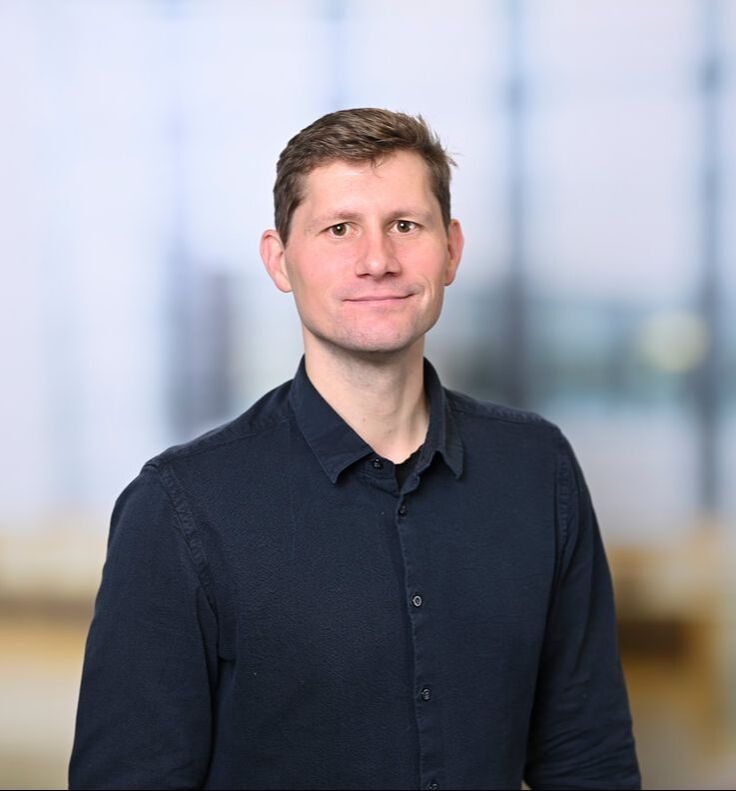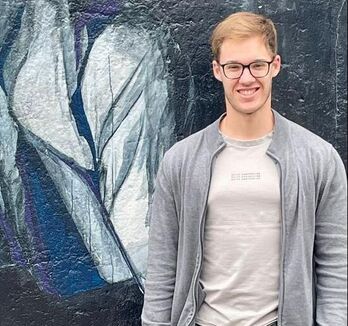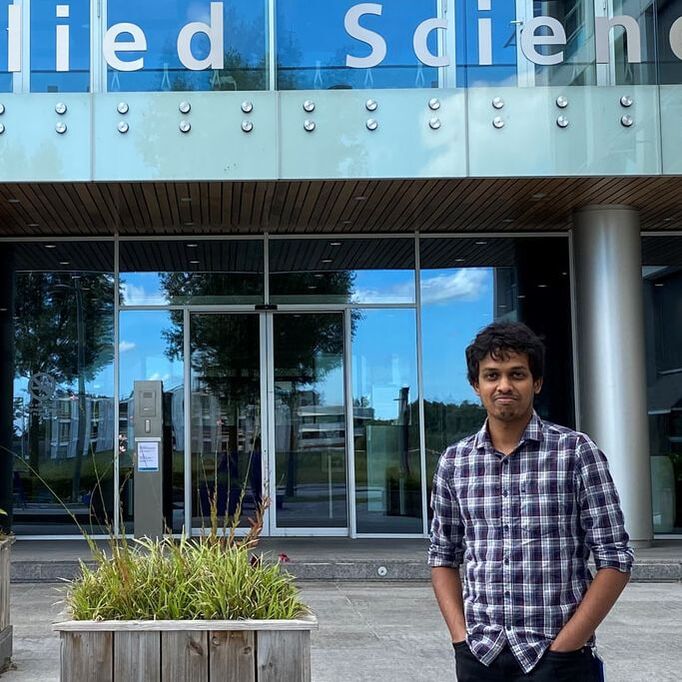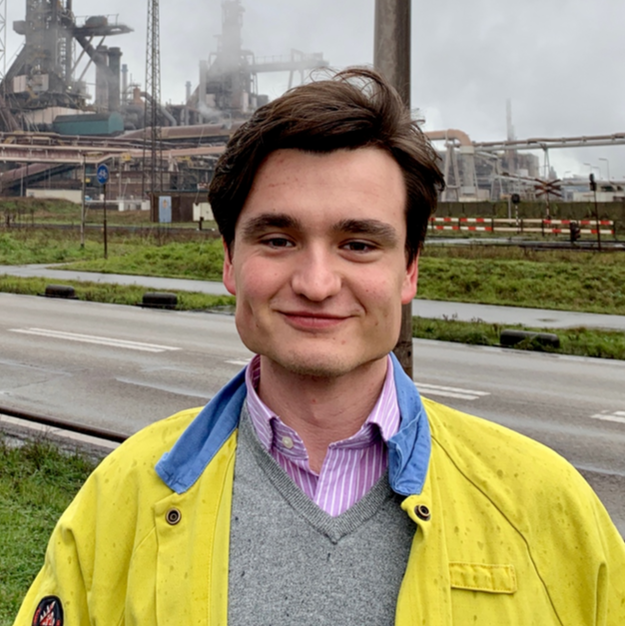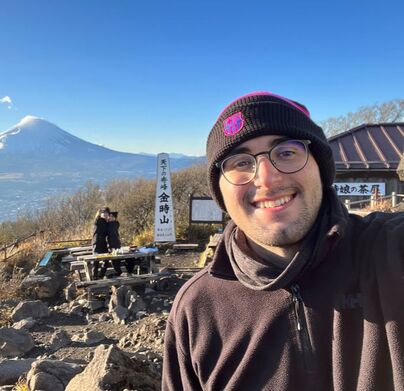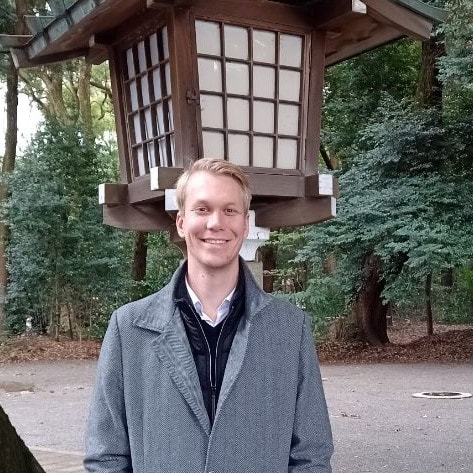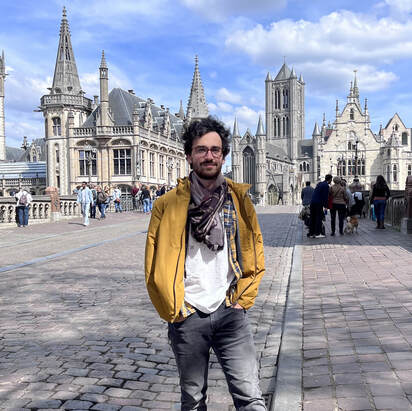Lab Principal Investigator
|
Associate Professor of Chemical Engineering at the Delft University of Technology. Tom currently leads the Burdyny Energy Lab where our group investigates electrochemical conversion technologies with the goal of bringing them to reality. The lab's current research is driven equally by phenomena occurring at the nanoscale, and understanding the technical and economical and barriers to global-scale implementation of new energy technologies.
During his PhD at the University of Toronto (2013-17), he investigated catalyst-system interactions and mass transport in CO2 electrolyzers. The research formed the basis for his role in the Carbon XPRIZE competition. |
Current PhD Students
Jesse KokJesse completed his bachelor Molecular Science and Technology in 2020 and his Master of Chemical Engineering in 2022 from the TU Delft. His master thesis was conducted at MECS under supervision of Siddhartha Subramanian and Dr. Tom Burdyny. Here, he studied the influence of reactant residence time on C2 product formation in MEA-cells. After experiencing great interest in the field of the electrochemical reduction of CO2, he was offered a PhD position in the same group. His research focus is on the intermittent operation of CO2 electrolysers as a part of the FlexEChem project.
|
|
Siddhartha Subramanian
Siddhartha Subramanian earned his B.Tech in Chemical Engineering from Pondicherry University, India (2014) and MSc in Chemical Engineering at Loughborough University, United Kingdom (2015). He then moved back to India performing research activities at CSIR-Central Electrochemical research Institute, Karaikudi where he worked on the design of an electrochemical process for converting CO2 to oxalic acid. In January 2020, he joined TU Delft as a PhD candidate. His current research focuses on the design of high current density systems for the electrocatalytic conversion of CO2 to value added products.
Recent Publication: Geometric Catalyst Utilization in Zero-Gap CO2 Electrolyzers. S Subramanian, K Yang, M Li, M Sassenburg, M Abdinejad, E Irtem, J Middelkoop, T Burdyny, ACS Energy Letters, 8, 222-229 (2023) |
|
Hugo was born and grew up in Catalonia, Spain. He moved to Delft to earn his BSc in Molecular Science and Technology and his MSc in Chemical Engineering. Upon graduation, he joined the TATA Steel in Europe manufacturing facility in IJmuiden, where he developed advanced analytics control models based on big data. In March 2020, he joined again the Delft University of Technology as a PhD candidate focusing on high current-density system design for electrochemical CO2-reduction. Hugo likes to fill his spare time with reading modern and classical literature, playing violin and viola at a student orchestra and string quartet and learning new languages.
Recent Publication: Non-invasive current collectors for improved current-density distribution during CO2 electrolysis on super-hydrophobic electrodes. HP Iglesias van Montfort et al. Nature Communications 14, Article number: 6579 (2023) |
|
Henri earned his B.Sc. in Mechanical Engineering and his M.Sc. in Chemical Engineering at the RWTH Aachen University in 2021 and 2023 respectively. His research within the Bachelor’s and Master’s focused on electrochemical hydrogen compression and purification under Prof. Matthias Wessling at the AVT institute in Aachen. Additionally, he spent his Bachelor’s junior year at the University of California in Davis and wrote his master thesis at the University of Cambridge under supervision of Prof. Alexei Lapkin. In December 2023, he joined the Tom Burdyny Energy Lab at the TU Delft as PhD candidate. His current research focuses on heat management within CO2 electrolyzer cells.
|
Gerard completed his BSc in Chemical Engineering at the Institut Químic de Sarrià (IQS) in Barcelona (2017-2021). After these four years, he decided to explore new fields and moved to the Netherlands, where he obtained a MSc in Chemical Engineering from TUDelft (2021-2023). For his MSc thesis, he focused on utilizing suspended electrodes to address current mass transfer limitations in liquid-fed CO2 electrolysers.
He then delved into the industry, undertaking an internship where he modelled the ionic transport of an industrial acid-base flow battery. In December 2023, he commenced his journey at the Burdyny Energy Lab, embarking on a PhD project dedicated to designing Iridium-Free Stable CO2 electrolysers. |
Elena AntonionoElena earned both her BSc and MSc degrees in Chemical and Sustainable Processes Engineering from Polytechnic of Turin, Italy, in 2021 and 2023 respectively. Her MSc thesis focused on the use and synthesis of biocatalysts for sensing application. Additionally, in 2020, as part of her Master program, she spent one semester at the Energy and Environmental Engineering department of the Institut National des Sciences Appliquées (INSA) in Lyon, France.
In March 2023, Elena moved to the Netherlands to join the MECS group of TU Delft as a PhD candidate. Here, her research is dedicated to the use of molecular catalysts in CO2 reduction. |
Postdoctoral Fellows
|
Jasper received his BSc and MSc in Chemistry at the Vrije Universiteit Amsterdam and University of Amsterdam. In 2017, he started his PhD at the Heterogeneous Catalysis and Sustainable Chemistry group of the University of Amsterdam. Here he mainly focused on the use of carbon-based materials for electrochemical conversion reactions. In 2020, he successfully defended his manuscript ‘A Green Spark in Electronics’ and went for one year hiatus to Teijin Aramid. He returned to academia in 2023 to work in the MECS group as a Postdoc. Here, he enjoys using his background in organic chemistry, material science and electrocatalysis to further develop scaled CO2 to CO electrolysers and molecular electrocatalysts.
|
|
Dr. Nikita Kolobov
Nikita earned both his BSc and MSc degrees from Novosibirsk State University in the department of Chemical Science. In 2018, he transitioned to KAUST (King Abdullah University of Science and Technology) to embark on his Ph.D. journey with the Advanced Catalysis Materials Group. Throughout this period, his primary research projects focused on exploring structural-performance correlations of Metal-Organic Frameworks for photocatalytic hydrogen production. Following the successful defense of his thesis, Nikita moved to the Netherlands, joining the MECS group of TU Delft as a Postdoc in December 2023. His ongoing research project is dedicated to the development of CO2 and CO electrochemical reduction systems. In addition to his main activities as a researcher, Nikita enjoys reading science fiction literature, playing competitive badminton, and exploring thought-provoking indie games.
|
Alumni
PhD Students and Postdocs
Soon to be Dr. Hugo-Pieter Iglesias van Montfort (PhD 2020-2024, now at Ore Energy)
Dr. Mark Sassenburg (PhD 2018-2023, now at TNO)
Dr. Kailun Yang (PhD/Postdoc 2017 - 2022, now at Elestor BV)
Dr. Kai Liu (PhD 2017 - 2022)
Dr. Erdem Irtem (Postdoc 2020 - 2022, now at VS Particles)
Prof. Mengran Li (Postdoc 2021 - 2022, now at University of Melbourne)
Dr. Maryam Abdinejad (Postdoc 2021 - 2023, now a PD at MIT)
Soon to be Dr. Hugo-Pieter Iglesias van Montfort (PhD 2020-2024, now at Ore Energy)
Dr. Mark Sassenburg (PhD 2018-2023, now at TNO)
Dr. Kailun Yang (PhD/Postdoc 2017 - 2022, now at Elestor BV)
Dr. Kai Liu (PhD 2017 - 2022)
Dr. Erdem Irtem (Postdoc 2020 - 2022, now at VS Particles)
Prof. Mengran Li (Postdoc 2021 - 2022, now at University of Melbourne)
Dr. Maryam Abdinejad (Postdoc 2021 - 2023, now a PD at MIT)
